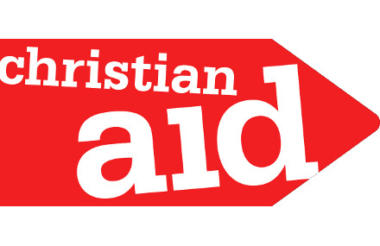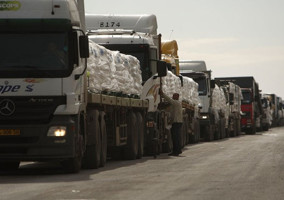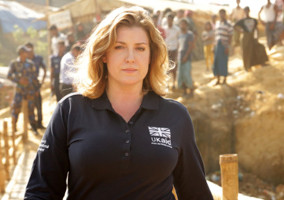Christian Aid has urged donors and civil society to reject and challenge the idea that harnessing global capital is the only solution to finding the money needed to deliver on the world's sustainable development goals.
In a policy briefing, Financing Injustice, Christian Aid argued that private investment cannot meet the quantity and quality of support that poorer countries need and can often cause negative effects to the environment and infrastructure.
It was produced during the World Economic Forum (WEF), in which a group of businesses, politicians and NGOs met at Davos this month for its annual conference discussing global issues.
Toby Quantrill, global lead on economic justice at Christian Aid said: "As the world’s super-rich descend from their mountain retreat in Davos, congratulating themselves on putting the world to rights, we must ask ourselves why the solutions they favour always seem to involve further opportunities for their own enrichment, and whether these really are the best solutions for everyone."
The report said that there was a financing gap in international development, with the Overseas Development Institute estimating a $2.4 trillion gap in financing health, education and social protection.
However the briefing said that charities and governments should not rely too much on private investors to meet this gap.
“Donors and civil society must reject the idea that the mobalisation of global capital is the only solution to financing the SDGs,” it said.
It said that private companies often use international aid to benefit the growth of their companies over ensuring its development is sustainable and an overreliance on them can open third world countries to the risks of tax dodging, environmental destruction and debt. It also said that its investment was “short term and volatile” and sometimes causes “direct harm”, noting the use of fossil fuels as one example. Christian Aid said that the quality of this finance must be improved.
It said: “We do not reject a role for global private finance in meeting the SDG funding gap.” But stated: “Our core proposition is that this kind of finance must be ‘good investment:’: it must have impact that goes beyond ‘do not harm’ and adds value, enabling poor countries to tackle the root causes of poverty; build stronger, more resilient national economies; and ultimately capture a more equal share of global income and wealth.”
“Those pushing for the rapid scaling-up of global private capital flows into developing countries must understand that the quality of finance matters as much as, if not more than, the quantity”.
To mitigate against potential harm, the report said that civil society organisations and governments must ensure that the private companies they outsource to comply with The UN’s sustainable development goals (SDGs).
The sustainable development goals are a list of 17 objectives that come as part of The 2030 Agenda for Sustainable Development, aimed at creating a more sustainable world. The goals include eradicating poverty, creating gender equality, ensuring access to education and reducing the impact of climate change. They were adopted by world leaders at a UN Summit in 2015.
It also advised that companies use the The Addis Ababa Action Agenda (AAAA), which was adopted by heads of state after the 2015 International Financing for Development Conference.
The AAAA is a framework for financing development sustainably. It focusses on seven areas including how to address debt, how to ensure cooperation and how to use international trade for development. The report said that private investors sometimes ignore the AAAA in its operations.
Christian Aid recommended that five areas should be considered to judge the quality of investment and the governing structures that control it. These are ensuring that investment: does no harm with regards to the environment and human rights; helps develop national economies; tackles inequalities; builds an environmentally sustainable economy and can be held accountable.
The report said: “If we are truly serious about leaving no-one behind and creating a fairer global economy, we need a radically different and rebalanced financial system; one that ensures that the very poorest are included and actively supported to thrive, and in which developing countries have an equal say in making the rules governing the global economy.”
“This will require a huge shift in the way that those who hold economic and political power are permitted to use that power. Only then will our economies work better for the good of all, rather than an elite minority.”
The report added: “None of this will happen without a stronger and more informed civil society in developing countries, which is equipped with the knowledge and tools to hold governments to account and ensure that our economies work better for the good of all, rather than a few.”
Related articles












